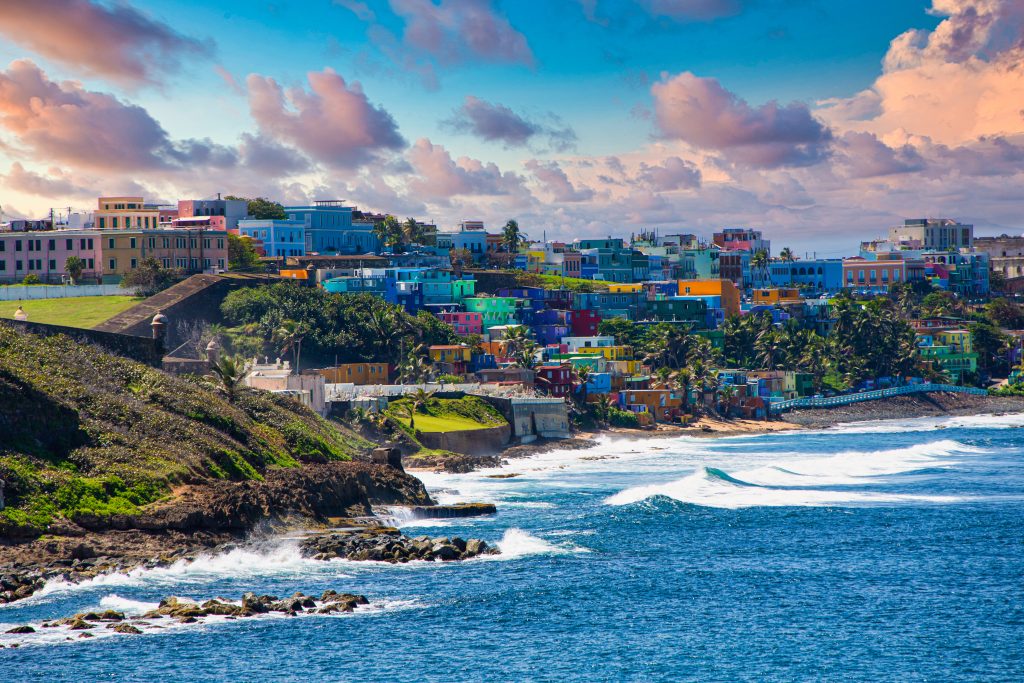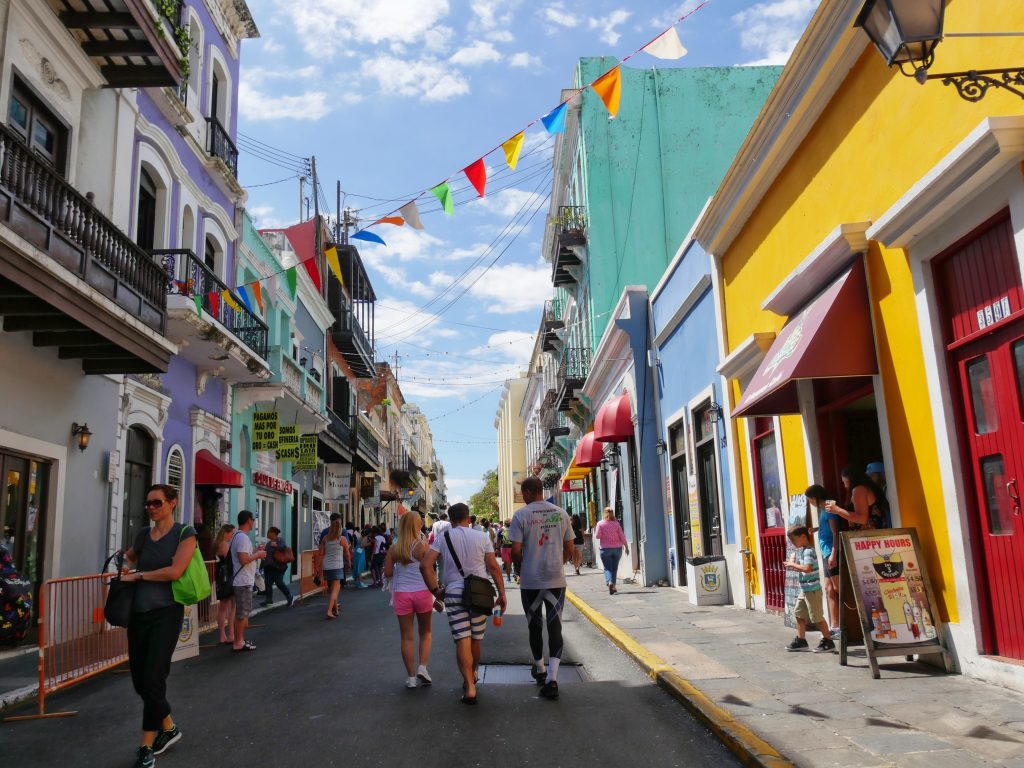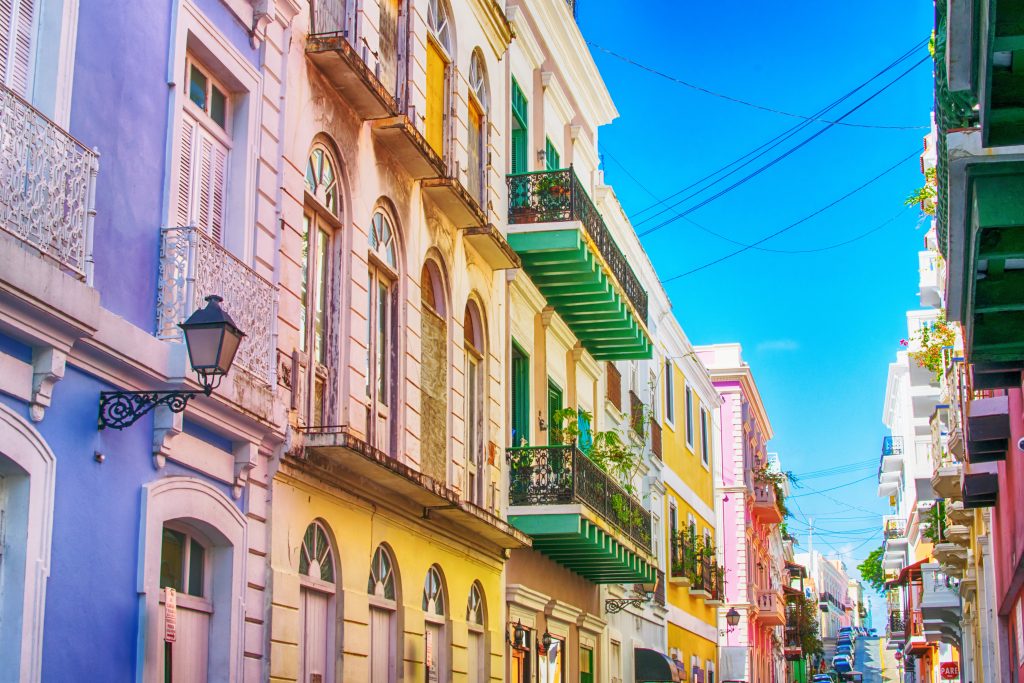Gorgeous weather, stunning beaches, and laid-back Caribbean lifestyle bring mainland-dwelling Americans to Puerto Rico all the time. What keeps them here is the surprisingly affordable lifestyle. Puerto Rico has a quality of life many mainland American cities would die for. Plus, moving here is easier than any other Caribbean island because Puerto Rico is a legal US territory. Throw in the generous taxation system for citizens and businesses, and Puerto Rico becomes incredibly attractive.
Estimated reading time: 6 minutes
If you’ve decided to move to Puerto Rico, congratulations! Whether to retire, start a business or simply enjoy the lifestyle, there’s a lot to love about this place. Moving here, while more accessible than other locales, isn’t without its stress and challenges. Plus, while it’s technically part of the US, Puerto Rico is still an island. That means shipping your things here is more complicated than moving to another mainland city. To help you, we gathered the crucial facts you need to know before moving to Puerto Rico. Read on to discover how to make your move as stress-free as possible.

You Don’t Need a Passport
While you likely have a passport if you love the Caribbean, you don’t need one to move to Puerto Rico. Indeed, there are no restrictions for American citizens to enter the country. All you need to show is your American driver’s license or another valid identity card. You can buy property here, a car, own a home, and start a business.
Puerto Rico’s Tax Benefits Come with Strict Requirements
Many have heard that Puerto Rico offers generous tax benefits to individuals and businesses. While this is true, those benefits come with some rather strict requirements. Following those requirements is highly recommended to keep yourself on Uncle Sam’s good side. They include:
- Living in Puerto Rico at least 183 days a year.
- You can’t have a “tax home” outside the territory.
- You need to purchase and live in your primary Puerto Rico residence.
- You can’t spend over 90 days anywhere else in the United States.
- You can’t earn over $3000.00 per year from any source on the US mainland.
- You must pass a “close ties” test to determine if your links to Puerto Rico are the strongest.
Getting a Puerto Rico Driver’s License is Not Easy
When you move from one American state to another, getting a new driver’s license is usually no big deal. You fill in some forms, hand in your old one, and have your picture taken. In Puerto Rico, however, there are several more proverbial hoops to jump through. For example, every state has a different reciprocity agreement with Puerto Rico. Some states allow you to make a simple exchange, while others don’t. For example, you might need more identification documents or a medical fitness statement from a local Puerto Rican doctor. For some states, a drug and alcohol course is also mandatory. In short, getting a Puerto Rico DL isn’t impossible, but it can be a hassle.

They Use Cash more than Credit Cards in Puerto Rico
In the United States, most folks have gotten used to paying for everything with cards. We buy lots of stuff online, sure. But even at the store, restaurant, shops, wherever, when it’s time to pay, out comes the plastic. In Puerto Rico, things are much different. Yes, at resorts, large stores, and upscale restaurants, they welcome credit cards. Small shops, however, typically don’t accept them at all. That includes bodegas, gas stations, restaurants, mercados, bakeries, and the myriad of “Mom & Pop” shops you’ll find everywhere. If you don’t have cash, you won’t be able to purchase anything. That takes some time to get used to for some.
Knowing Spanish Can Be Very Helpful, but isn’t Required
As you probably know, Puerto Rico’s mother tongue is Spanish, and most people speak it. However, as a US territory, many residents on the island also speak English. Remember, just like mainlanders can easily go there, Puerto Ricans can easily come to the mainland. A lot of them do, and they learn English along the way. Many schools in Puerto Rico teach English, so you’ll hear it everywhere. Still, not everyone knows Spanish, especially far outside the bigger Puerto Rican cities. That’s why learning the language is a good idea if you plan to stay long-term. The truth is, Spanish is one of the easiest languages to learn. Many words in Spanish and English are similar, and the language is straightforward, with few weird grammar exceptions and quirks.
No Heating Systems in Puerto Rico
One big difference for those accustomed to the US mainland is you don’t need a heating system in Puerto Rico. The weather rarely drops under 65℉, even at night. Indeed, you won’t find heavy clothes, boots, gloves, and winter hats sold down here; they’re simply unnecessary. Not needing heat will save you big on electric bills. Fans are all you need to beat the heat most of the year, making for some affordable electric gas bills.
Most Kitchens Have Propane Stoves with Tanks
Most American cities and towns on the mainland have underground gas lines piping in gas for heating and cooking. In Puerto Rico, however, like most Caribbean nations, most homes have propane stoves that use propane tanks. Like a BBQ grill, you get another when the tank runs out of fuel. However, small mom & pop gas businesses deliver the tanks to your home. Most will attach and detach them as well.

Facts you Need to Know Before Moving to Puerto Rico Brought to you by Southern Self Storage
We hope the information above will be useful when moving to Puerto Rico. As we’ve seen, there are many excellent reasons to make this lovely island your home. From magnificent weather to low taxes, friendly people, and amazing cuisine, it’s a true island paradise. The fact that it’s also part of the United States is icing on the Caribbean cake!
If you need storage when you arrive, click here to see Southern’s main Puerto Rico facility page. You’ll find the addresses and phone numbers of our 8 self-storage facilities on the island. You can call, reserve a storage unit online, or visit in person! The on-site managers will gladly help you choose the storage units in Puerto Rico that fit your needs best!
This post was originally published on 09/09/2020. It was updated on 09/29/2022.

How to ship my car to Puerto Rico? What other charges besides shipping?
Great question! The cost of shipping a vehicle to Puerto Rico from the U.S. usually costs from $1,700 to $3,500 in total. There are several companies that ship cars to Puerto Rico. Try checking out Crowley Logistics.
Question: in PR do we pay taxes over social security benefits income?
Employers and employees in PR pay Social Security (FICA) and Medicare taxes. Any income from outside of PR is subject to the federal income tax including:
1. Federal Government Employees, such as Post Office, Federal Court, etc.
2. Those on Active Duty, the Reserves of the Armed Forces of the U.S.
3. Interest from U.S. Savings Bonds.
4. Dividends from corporations based in the Continental U.S.
5. Sale or rental of property in the Continental U.S.
6. Federal Government, State, Municipal and any other pensions originating in the 50 States.
In PR the Constitution of the US is the Supreme Law of the Land, and the Supreme Court of the US is the ultimate court of appeals. Most federal laws apply and most federal agencies operate in PR.
If you still make your regular income from the US mainland, that’s more than $3,000, what’s the deal with that? What % do you get taxed on? & would I get taxed twice, meaning, one from Arizona, then one from PR?
Thanks.
Thanks for all the info! I really did not know any of that so it was very helpful! If I’m in need of storage, I know who to call!
What if you have pets?
I would like to ask the question of if I move from Georgia in the United States to Puerto Rico with my social security benefits does my benefits change or do they go down or up or are they taxed please send me the information I need because I’m really seriously can contemplating moving to Puerto Rico for my retirement!